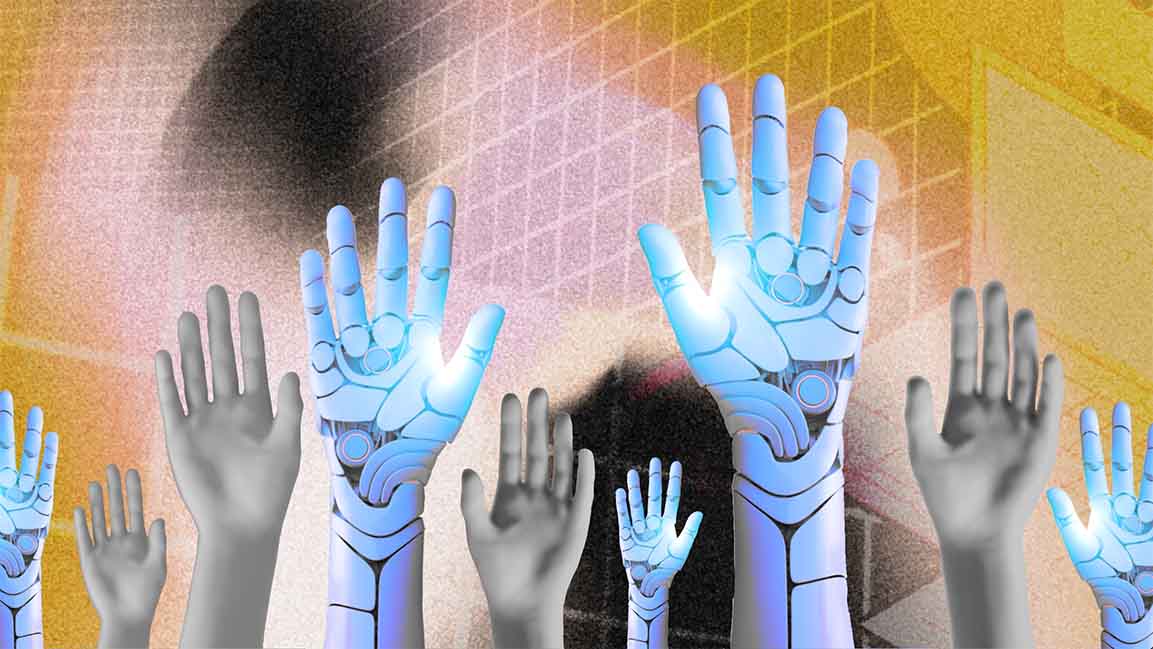- | 1:00 pm
Will AI supercharge productivity or steal jobs? Egyptians have a mixed feeling
While workers see the advantages of automation, 44% fear losing their jobs to robots, according to a new survey.

For decades, robots have worked with humans in product sorting, assembly work at factories, and fetching supplies for nurses. Demand is accelerating the deployment of advanced robots. But now robots and chatbots are coming to understand more complex, nuanced tasks, such as ChatGPT. It can have a cohesive conversation, explain difficult scientific concepts, and translate documents between languages.
Sure enough, that’s creating a lot of very-human anxiety. Workers have concerns about the employment of robots and automation technologies by businesses, according to a Kaspersky study.
In Egypt, 44% of workers fear losing their jobs to robots, and 25% say they have heard of cybersecurity incidents using robots or automated systems in their workplace. At the same time, many workers see the advantages of automation.
Respondents cited how automation improves worker health: 66% claimed that robots relieve workers of physically taxing or hazardous tasks. A total of 52% of respondents said that using robots improved the effectiveness of manufacturing operations and benefited the firm financially.
About 40% thought robotization allowed workers to retrain for more fulfilling and well-paying jobs, and 37% thought it lessened the possibility of accidents because of the human aspect.
According to Kaspersky, while some people and businesses are apprehensive of automation, others modify their operations to maximize the advantages of the most recent technologies. Companies need to look into ways to make automated solutions more secure and effective for business demands.
































